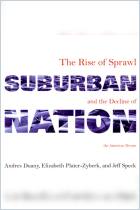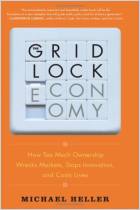
Paved Paradise
How Parking Explains the World
From PAVED PARADISE by Henry Grabar Summarized by arrangement with Penguin Press, an imprint of Penguin Publishing Group, a division of Penguin Random House LLC.
ISBN: 9781984881137
Pages: 368
Recommendation
Cities continually build more space for parking cars, but they hardly make a dent in the perceived parking shortage. Despite vast parking lots and multilevel garages, people still jockey for limited – but convenient and cheap – curbside spots. Adding more lots and garages feeds urban sprawl, exacerbating traffic tangles as city centers increasingly become accessible only by car. Many city planners conclude that an overemphasis on parking is the main culprit in the decline of American downtowns. Slate staff writer Henry Grabar offers an entertaining history of American parking, and profiles urban planners who offer new solutions to the problem of ubiquitous cars.
Summary
About the Author
Slate staff writer Henry Grabar has contributed to The Atlantic, The Guardian, and The Wall Street Journal. His special reporting interests include housing, transportation, and urban policy.





















Comment on this summary or Diskussion beginnen